Urgent need for an EU coordinated approach to protect Ukrainian children at the border with the EU
- By Ntcadmin
- In Uncategorized
Brussels, 23 March 2022
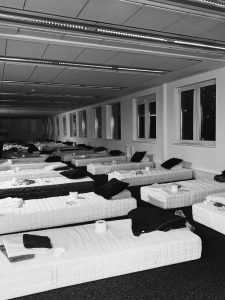

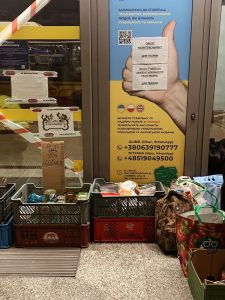
On March 20 – 22, the European Parliament Intergroup on Children’s Rights led a mission with the three EU Institutions to Poland at the border with Ukraine to assess the situation of the displaced children – both unaccompanied and with families – fleeing the conflict in Ukraine, and identify what are the needs on the ground. The delegation encompassed MEP Catharina Rinzema (Renew, Netherlands), Vice-Chair of the Intergroup on Children’s Rights, Mr. Emilio Puccio, Secretary General of the Intergroup, HE Adrien Taquet (Renew), French Secretary of State for Child Protection and Families, and Ms. Diane Schmitt, EU Anti-Trafficking Coordinator in the European Commission in a full display of EU unity.
The European Parliament Intergroup on Children’s Rights also gathered a number of prominent representatives of civil society organizations: Prof. Ernesto Caffo, President of Telefono Azzurro, Member of the Pontifical Commission for the Protection of Minors, Maud de Boer-Buquicchio, President of ECPAT International, President of Missing Children Europe, former UN Special Rapporteur on the sale and sexual exploitation of children, as well as Ms. Beatrice Lorenzin MP (S&D, Italy), former Italian Minister of Health (2013 – 2018).
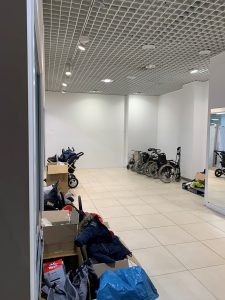
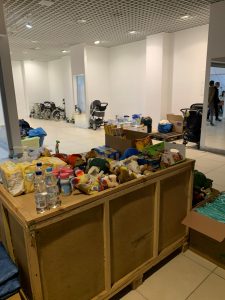
The delegation met with Ms. Marlena Malag (ECR), Minister of Family and Social Affairs and with Mr. Bartosk Gordecki (ECR), Deputy Minister of Interior, as well as with Mr. Rafał Trzaskowski (EPP), Mayor of Warsaw. The mission also encompassed a visit of one of the permanent reception centres in Warsaw – accommodating around 300 Ukrainians, as well as a full day to the Polish border with Ukraine. The delegation visited one of the temporary accommodation centres set along the border, in Chelm – at 17 km from the border with Ukraine, and the only temporary accommodation and registration centre for orphans and children with disabilities of Poland in the municipality of Stalowa Wola.
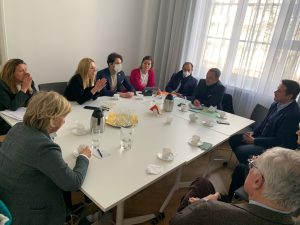
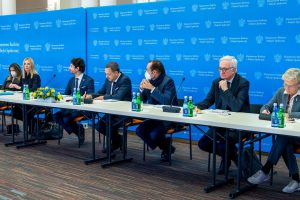
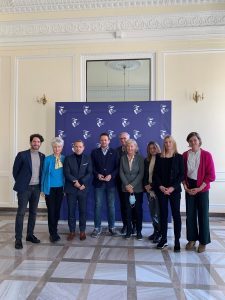
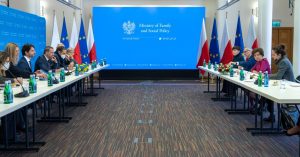
While the sheer outpouring of generosity of the Polish people and volunteers is remarkable, the huge influx of Ukrainian people fleeing Ukraine through the Polish border has put a huge strain on Poland. Therefore, the worsening humanitarian crisis in Ukraine requires an urgent coordinated child protection response from the EU: with thousands of vulnerable children flowing across borders daily, there are significant risks of human trafficking, children going missing and not receiving appropriate protection and services.
“I really want to commend the work done and efforts put in place by all volunteers, police officers, the army and all humanitarian workers on the ground to address the needs of Ukrainian people coming to Poland, in particular children. It is key for the EU to step up its action and offer to the Polish municipalities on the frontline of the crisis a strong support to ensure children are taken care of, and the best interest of the child is always upheld in all decisions concerning them. We want to work in coordination with the Ukrainian government and the Polish, Romanian, Moldovan, Hungarian and Slovak governments, to ensure that once children arrive in the EU Member State, they are transferred with support of IGOs and NGOs and that there’s a proper handover to the child protection systems.” – said MEP Catharina Rinzema (Renew, Netherlands), Vice-Chair of the Intergroup on Children’s Rights.
The European Parliament Intergroup on Children’s Rights is strongly advocating for an integrated and coordinated EU approach to address the specific challenges posed by the enormous influx of Ukrainian children – both unaccompanied and with families:
- Call for a centralised robust registration system at the border to ensure children are accounted, both using the existing EU system and considering the opportunity to create a new EU database.
With such an enormous influx of people, there is an increased risk for children of going missing or worse, falling victim of traffickers and sexual exploitation. We need an integrated approach at the border, with child protection officers that are able to identify the vulnerabilities of these children and ensure a proper handover to the national child protection systems so that children are granted full access to all basic services and appropriate care in line with the international standards of child protection.
- Call for the creation of safe passages & humanitarian corridors for children – both unaccompanied & with families – fleeing the conflict and put in place an EU strategy to step up humanitarian actions on the ground to rescue Ukrainian vulnerable children, especially those from institutional care, foster care, children in hospitals, children with disabilities, war orphans and unaccompanied minors, especially in combat zones.
It is key to work with the Ukrainian authorities to expedite the evacuation of the children in institutions and to ensure that they are transferred to appropriate facilities among Member States so that they can receive the appropriate care.
- Strengthen the child protection systems in hosting countries to enhance psychological support and access to basic services, such as education and health – including vaccinations, for Ukrainian children on equal footing with children from the host countries and work out relocation mechanisms to reduce the pressure on neighbouring countries.
Whilst most of the actions are of course now aimed at addressing the emergency, it is key to already work out a long-term strategy to ensure children are enrolled in schools. This should be done either in the national curricula of hosting countries or through distance learning programmes in accordance with the Ukrainian government, so that children do not miss out on important formative years of education.
On the last day, the delegation also held a roundtable discussion on the ‘Specific challenges of children on the move: need to create a robust registration system’ at the Italian Embassy of Poland. The roundtable discussion featured the participation of Ms. Barbara Socha, Secretary of State for Demography of the Ministry of Families and Social Affairs, Mr. Paweł Wdowik, Secretary of State for persons with disabilities and Mr. Mikołaj Pawlak, Polish Ombudsperson for Children, with representatives of the US National Centre for Missing and Exploited Children and from the tech industry.
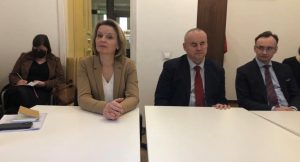
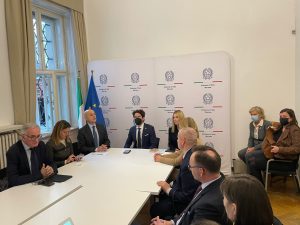
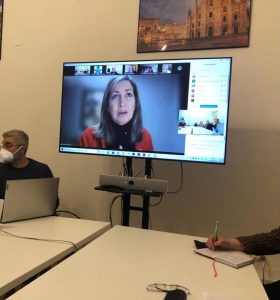
It is essential to follow a multi-disciplinary approach in place that takes into consideration the vulnerabilities of children and the psychological trauma, with long-lasting consequences for children. It is essential to have a coordinated EU approach to verify the quality of the psychological services offered to children. Relocation mechanism should be enhanced in accordance with the Ukrainian authorities.

Post Your Comment
You must be logged in to post a comment.